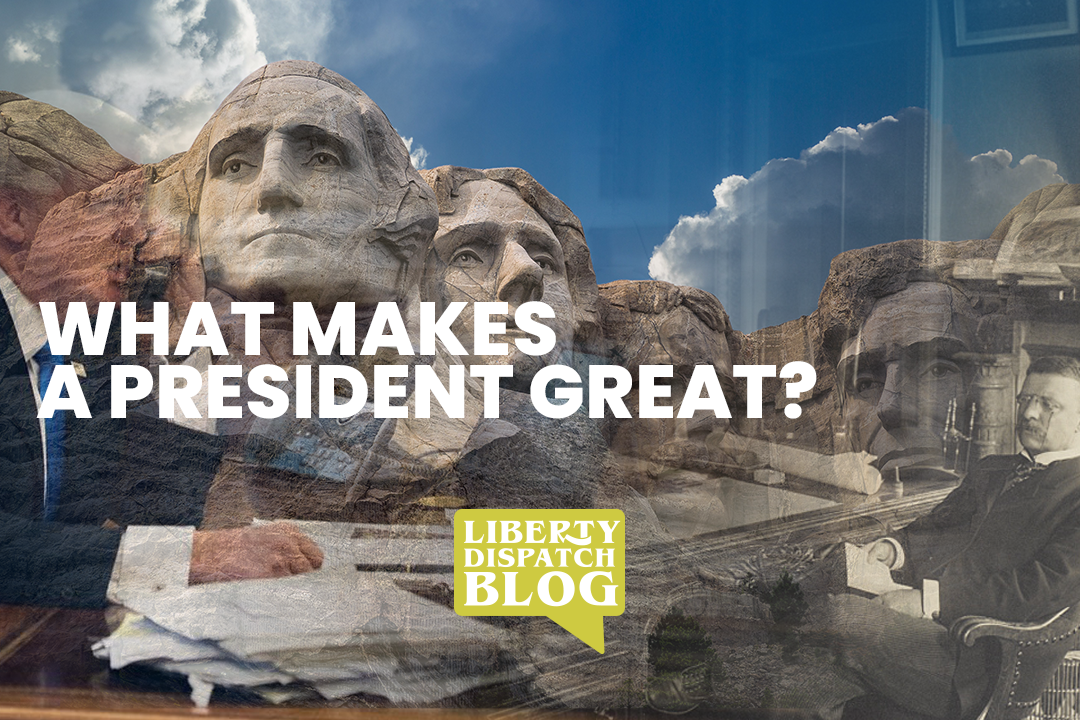
What makes a President Great?
What traits make a GREAT president? It is a worthwhile question to ask as we head toward November. This question has nothing to do with either side of the aisle or whether you prefer red or blue. It is simply a question having to do with the qualities great presidents of history have possessed. My hope is that it might clear a path for you if you struggle with the choices for this election cycle.
The Constitution gave only three requirements:
- At least 35 years old
- A natural born citizen
- A resident of the United States for 14 years
That’s it. There are no conditions about gender, sexual orientation, religious beliefs, or mental aptitude. Therefore, with only having three essentials, we are left wondering what the great presidents of the past had in terms of qualities that made them shine.
In August of 2000, a group of researchers presented at the American Psychological Association’s 108th Annual Convention in Washington D.C. their findings after analyzing the personality traits of all 41 presidents to date and comparing them with historians’ views of presidential greatness.
The researchers used several objective personality tools and tests to analyze the assessments made by more than 100 presidential experts. They were instructed to look at the five-year period before their subject became president to avoid the influence that life in the White House might have on behavior.
Let’s see what they found:
Results of the research indicate that great presidents, besides being stubborn and disagreeable, are more extraverted, open to experience, assertive, achievement striving, excitement seeking and more open to fantasy, aesthetics, feelings, actions, ideas and values. Historically great presidents were low on straightforwardness, vulnerability and order.
Achievement striving was found to be one of the best correlates of greatness in the oval office and competence was also a big predictor of presidential success. "Presidents who succeed set ambitious goals for themselves and move heaven and earth to meet them," said the researchers. They say Teddy Roosevelt was such a man but Grant and Harding were not. And don't look for great presidents to have neat desks in the Oval Office. "It seems that being a bit disorganized, like Lincoln, is somewhat of an asset for attaining historical greatness," explained the authors.
The researchers gave special attention in their study to the personalities of George Washington and Abraham Lincoln. They note that both men have been in the top three of every historian's poll of presidential greatness, but besides being very tall and imposing men, they seemingly had little in common. Washington scored very high on conscientiousness but scored lower than typical Americans today on openness, extraversion and agreeableness. He also scored quite low on vulnerability, which indicates an exceptional ability to tolerate stress and adversity. He also scored low on openness to values, which indicates that he was traditional in his morals and relied on leadership from church and religious figures in these matters. Additionally, Washington scored high on achievement striving, competence, self-discipline and deliberation.
Lincoln scored high on openness, but his highest score was on depression, which the authors say is consistent with reports that he occasionally suffered periods of deep despair. Lincoln scored low on straightforwardness. "He was willing to bend the truth," said the authors, "although he was usually seen as honest and well intentioned."
The authors say that nearly all presidents could be classified into one or more of eight presidential types, with some belonging to more than one group. These include The Dominators (Nixon, Andrew Johnson, Lyndon Johnson, Jackson, Polk, Teddy Roosevelt and Arthur), The Introverts (John Adams, John Quincy Adams, Nixon, Hoover, Coolidge, Buchanan, Wilson and Benjamin Harrison), The Good Guys (Hayes, Taylor, Eisenhower, Tyler, Fillmore, Cleveland, Ford and Washington), The Innocents (Taft, Harding and Grant), The Actors (Ronald Reagan, Warren Harding, William Henry Harrison, Bill Clinton and Franklin Pierce), The Maintainers (McKinley, Bush, Ford and Truman), The Philosophes (Garfied, Lincoln, Jefferson, Madison, Carter and Hayes), and the Extraverts (FDR, Kennedy, Clinton, Theodore Roosevelt, Reagan, William Harrison, Harding, Jackson and LBJ).
It may come as no surprise that the research shows that most modern presidents are clearly extraverts. However, the data indicates that the early presidents scored below average on this factor. Does that mean that presidents are becoming more extraverted, or that the entire population has become more extraverted? The researchers say their data can't answer that question, but "given the increasing role of the media in presidential elections, the more plausible explanation is that the change is limited to the presidents and not the general population."
Which traits did your favorite president have? Which ones do you value? Were they on the list? What traits are missing? Leave a comment as we at Defender Gear are curious to know what you value in a great President of the United States as we all work to use our one and only vote for good.
Sources
https://www.usa.gov/requirements-for-presidential-candidates


